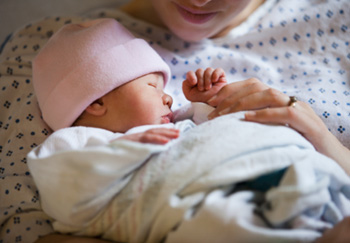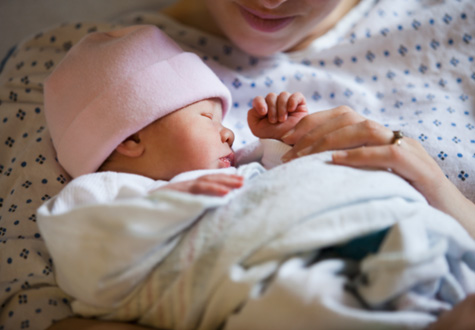This article also appears in the July 2016 issue of Cville Family magazine.

Having a baby is among a woman’s most memorable life events. An important first step in preparing for the big day is choosing someone to help deliver your baby. Women today have lots of choices. OB/GYNs (obstetrics and gynecology) doctors specialize in prenatal care and delivery, but midwives and doulas can play an important role too.
UVA OB/GYN
OB/GYN doctors have the highest level of training when it comes to making sure mom and baby are both safe and healthy throughout the pregnancy and the newborn’s first days. At UVA Health System, experienced obstetricians care for women who have low-risk pregnancies. This all-female obstetrics group is based at Northridge Medical Park but also sees women in downtown Charlottesville and Zion Crossroads. These doctors, as well as certified nurse midwives, collaborate with UVA’s maternal-fetal medicine specialists to care for women with complicated or high-risk pregnancies.
“A wonderful reason to deliver at UVA is that a woman can have a totally natural birth here but also easily access any resource that may be needed if a known or unexpected complication arises,” says OB/GYN specialist Vanessa Gregg, MD.
How Can Midwives Help?
Many people associate midwives with home births. But there is a growing trend among hospitals to have them on staff. UVA has four certified nurse midwives. If you are healthy and have a normal pregnancy, a midwife can follow you through your entire pregnancy and delivery.
We Love Babies
As the region’s only Baby-Friendly® designated hospital, UVA specializes in promoting mother-child bonding right from the start.
Learn more about the pregnancy and birth services available at UVA.
“We are experts in low-risk pregnancy and delivery,” says Mary Kwiecinski, a midwife who provides prenatal care and education at UVA’s Obstetrics Clinic in the Battle Building in Charlottesville.
The word ‘midwife’ means ‘with woman.’ “We stay with the woman through active labor,” Kwiecinski explains. “We try to help labor progress naturally with high-touch, low-tech interventions such as essential oils, hydrotherapy, massage therapy, birth balls or squatting bars. But if a woman needs IV pain medicine or an epidural, those are at our disposal as well.” A woman in labor can continue to be cared for by her midwife even after choosing IV pain medication or an epidural.
Kwiecinski adds, “By reducing fear and creating a calm environment, labor is more likely to unfold without intervention.”
As a midwife who works in the hospital, Kwiecinski and her colleagues are nationally board certified in midwifery and also are registered nurses who collaborate closely with physicians when needed. (Midwives who deliver babies outside of hospitals have a different type of training, work independently, and are usually known as professional or licensed midwives.)
Doulas
Like a woman’s designated friends or family members, a doula is not typically a hospital employee but is welcome in the delivery room. The word ‘doula’ comes from the ancient Greeks, meaning ‘a woman who serves.’ Today’s doula is a “trained and experienced professional who provides physical, emotional and informational support to the mother before, during and just after birth,” according to DONA International, the oldest and largest doula association. DONA lists online more than 100 doulas in Virginia.
